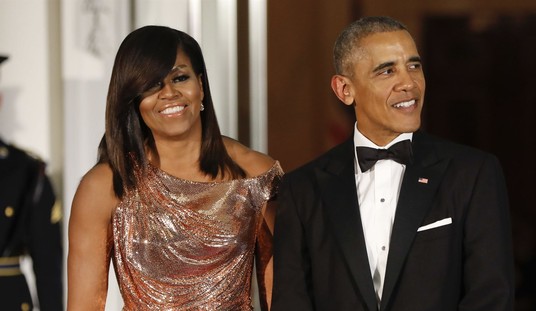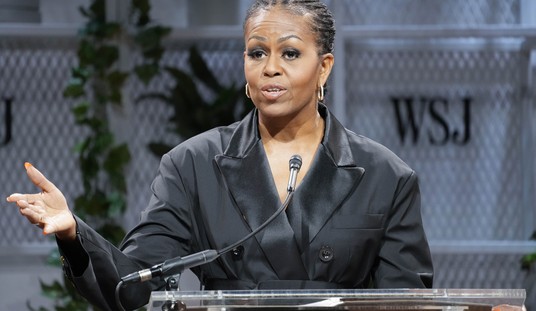The Republican presidential hopefuls — declared and undeclared — descended on New Hampshire this past weekend for the First in the Nation Republican Leadership Summit.
But what issue was first on the agendas of those eyeing a shot at the Oval Office?
Former Florida Gov. Jeb Bush tried to varnish the family name for a new campaign. “We’re not always like our brother or sister or mom and dad. We all have our own unique DNA and our own life experiences,” he said, telling a bit of his life story including the love-at-first-sight meeting with his wife at age 17 in Leon, Mexico.
His address focused largely on his tenure as governor. “My set of values believes that the most vulnerable in our society should be in the front of the line, not in the back of the line. And Republicans, I think, do better when we show our consciousness to do the exact same, whether — whether it’s the developmentally disabled, or a child welfare system, or the people that are struggling, we should give them our attention and help and reform the systems to make sure that they have a better chance to rise up,” Bush said.
The first question he fielded from the audience, though, was a concern about the establishment continuing the Bush dynasty. “I don’t want a coronation on our side by any stretch of the imagination,” the New Hampshire resident said.
“I don’t see any coronation coming my way, trust me,” Bush quipped. “Come on, what have you seen that I’m not seeing? I’ve got 95 people possibly running for president.”
New Jersey Gov. Chris Christie latched onto the third rail. “If anybody comes up on this stage and wants to talk to you about national defense, wants to talk to you about education, research and development, tax cuts, or anything else involving the federal government, you should ask them what they’re gonna do on entitlements, because if they’re not gonna do something to fix that problem, we’re not going to be able to deal with any of the other problems or opportunities that we have in this country,” he said.
Yet one of the first questions he fielded was about immigration.
“One of the most important things you have to do is to protect the sovereignty and the security of the country,” Christie said, though he’s “not somebody who’s for building a wall from one end to the other.”
“…I’m not someone who believes that for the people who are here already, that they’re going to self-deport. Not something that I think is going to happen. And the fact is, for our society, we don’t have enough law enforcement people to round up 10 million or 12 million people — whatever number you want to use. So we’d better get together as a party first, and then as a country and decide how we deal with these problems in a way that makes sense.”
Sen. Ted Cruz (R-Texas), who was the first to declare his candidacy, talked about abolishing the IRS and putting the agency’s 90,000 employees on border patrol.
“Now, to our friends in the media, I say that somewhat tongue-in-cheek. But think about it for a second. Imagine you had traveled thousands of miles through the blazing sun. You swim across the Rio Grande. The first thing you see is 90,000 IRS agents. You’d turn around and go home, too,” Cruz quipped.
He predicted the next 20 months will be like Lord of the Flies, but after repeating much of his campaign kickoff speech — “imagine” a president who… — Cruz’s Q&A was cut short by a scheduled wedding in the hall.
Cruz did have time to explain why he’ll be voting against Loretta Lynch once a vote on the attorney general nominee comes to the floor. “I asked over and over again, number one, if she would support the president’s illegal and unconstitutional executive amnesty,” he said. “She said absolutely yes.”
Sen. Lindsey Graham (R-S.C.) mixed serious and silly, cracking jokes throughout his speech, such as: “Don’t let anybody buy the Republican primary. If it weren’t for Iowa and New Hampshire and South Carolina, you could. I do bar mitzvahs, birthday parties, weddings, funerals. Call me, I’ll come.”
“If you’re looking for something new,” he advised, don’t look to Hillary. “Look to the 35 people running for president on the Republican side. And just shoot up among us until you get one of us out of the tree. And whoever that person is, I’m gonna be behind them.”
Graham did take time to cover his signature issue in Congress: the war on terror. “You know how it ends? We win, they lose. That’s how it ends,” he said. “We’re gonna beat these bastards and they’re never coming here again. And I’ve never been more worried than I am right now about them coming here again. And if we don’t do something, they’re coming here again.”
Louisiana Gov. Bobby Jindal also began with a comedy routine, with a political point: “I want to talk to you about the need for the successful to pay more in taxes to the government. I want to talk to you about what a great success President Obama has done in the Middle East, this historic agreement he is negotiating with Iran. And I want to talk to you about my grandparents, who immigrated — I’m sorry. I’ve got the wrong notes. This is Hillary Clinton’s speech. I’m sorry. This isn’t my speech.”
Jindal advocated shrinking the Department of Education because “when we get rid of Common Core there’ll be another version of this.”
“This isn’t the first time the federal government is trying to take over local classrooms, and it won’t be the last,” he warned.
Ohio Gov. John Kasich focused on his time in office, with strong overtones about the importance of his home state in the presidential election. “I won 86 out of 88 counties,” he said of his re-election. “Barack Obama won Cuyahoga County by 40 points, and I carried it. I won 26 percent of the African-American vote, 51 percent of the vote for union households and 60 percent of the vote from women.”
“If you’re in the minority, if you have a drug problem, if you have a problem with mental illness, we’re going to include you. Because as Ohio does better, we need to lift everyone. Because if you lift everyone, you give everyone hope,” Kasich said. “So what’s the lesson of leadership? No polls, no focus groups, no consultants in the back room telling you what to do or what to say, none of that.”
“You as a leader need to know what you’re for. And you need to build a team around you who supports what it is that you’re for. And then you need to take that message out and get people who don’t even agree with you to see the purpose, the high moral purpose behind what you’re doing.”
Sen. Rand Paul (R-Ky.), who was second out of the gate in announcing his run for president, hit a number of conservatarian talking points. “Some of the descriptions of who terrorists might be are people who have changed the color of their hair recently. Anybody in the room? I’m not going to ask. No, that’s too personal. All right, stains on your clothing, likes to pay in cash, has ammunition at home, has more than one weapon at home. You think there might be a time when you might say, I want my trial, I want my lawyer, and I want my due process?”
Paul said the GOP needs to be the party of the Bill of Rights again “because it’s the party of the unpopular.”
“Everything goes well for the high school quarterback. Everything goes well for the prom queen. The Bill of Rights is for the least among us. It’s for the least popular among us,” he said.
In an indication of where Paul intends to focus his attacks on Hillary Clinton, the senator said, “When I think of the scandals, the one that probably bothers me the most is Benghazi.”
“We have a potential nominee on the other side who wants to be the commander-in-chief. There is a bar you must cross. Will you defend the country? Will you provide security when it’s requested?”
Former Texas Gov. Rick Perry sounded like a guy who will be tossing his name into the ring at this first-in-the-nation state gathering of Oval Office hopefuls.
“Two things I learned in 2011, number one is you got to spend a lot of time in New Hampshire and you’d better be healthy and you’d better spend like years here,” he quipped.
Perry also stressed that “to be prepared to stand on a stage and talk about this myriad of issues, whether it’s domestic policy, monetary policy, whether it’s foreign policy, takes years of intense study.”
“And I spent the last three years in that, in that mode, being able to stand up and discuss all of these issues and do it in a way that is very profound and impactful,” he said. “…But with that said, I will suggest to you that the next President of the United States really needs to be someone who has deep experience as an executive.”
Sen. Marco Rubio (R-Fla.), meanwhile, was at his first big candidate confab since becoming the third senator to announce a 2016 White House run.
“Scott Brown tonight let me know that Hillary Clinton’s going to raise $2.5 billion, which that’s a lot of Chipotle, my friends,” Rubio quipped.
The next presidential election, he declared, “will not be a choice about what laws we’re going to pass or whether it’s going to be a Republican or a Democrat. 2016 is a referendum on our identity. The fundamental question before us is, what kind of country do we want to be? Do we want to remain special or are we prepared to become just like everybody else?”
Bilingual Rubio was asked about people not being compelled to learn English. “If you don’t speak English, you’re not going to prosper economically in America,” the senator replied, stressing the problem of visa overstays on a subsequent question: “We’re like the hotel that checks you in, but never checks you out.”
Donald Trump stressed that he knows Hillary Clinton “very well,” and “I can beat her. And I think most other people will not.”
“If I got the nomination I would put up a fight like nobody’s ever put up because we have to save the country. Our country’s in deep trouble,” he said.
After an audience member yelled “you’re hired,” Trump replied, “Thank you. That’s what I want to hear.”
Wisconsin Gov. Scott Walker focused on his state achievements and recall election victory before veering into tax reform.
“When it comes to the debt and deficit, part of that reform is sending it back to the states. Part of it’s tackling the bigger issues and should we be a candidate for this office of the president, obviously, in the coming months, we’ll be laying it out in greater detail,” he said.
Walker said he united Wisconsin Republicans in his last election because “Tea Party to establishment from social conservatives to libertarian because well, people want more anything, because they don’t just want a fighter, they want somebody who fights and wins.”
“…And interesting enough, you don’t win the center by running to the center. You win the center by leading. What independents want is not unlike what our base wants.”









Join the conversation as a VIP Member